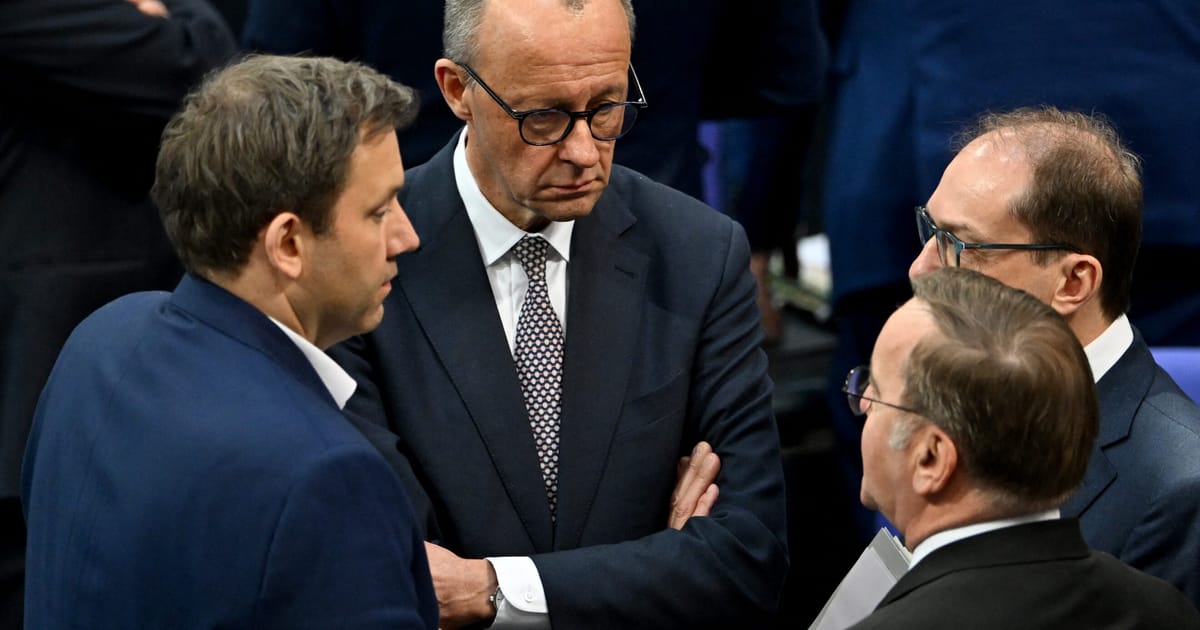It was one of the most dramatic and radical policy reversals in European Union history. In less than 48 hours, Germany not only executed a seismic shift in its domestic budget policy but also suddenly pushed to rewrite the EU’s fiscal rules it itself helped to draft.
Brussels welcomed the first move as a long-overdue response to years of urging Germany to invest more, rather than let itself be constrained by a constitutional limit on borrowing.
But the second? That was seen as a unilateral move — an overcorrection that unsettled even Germany’s closest allies.
We either loosen our rules now and invest in security or we are doomed in the future. I understand why some might be sceptical. But at the same time Germany is the top contributor to EU and other countries should be happy that they are taking the lead on making Europe safe. It‘s not like other countries cared a lot about debt in the past, quite the opposite, many are just in the EU for the money. So…
deleted by creator
Individual countries don’t have an exchange rate, the ability to devalue their currency, and until now, where Germany now decides to build itself a huge army, the ability to run deficits to manage downturns.
To me that does not suggest a shortcoming of the Euro as a concept but a severe lack of authority on the part of the EU. Ideally, member states would not even be able to run their own economic policies in a unified economic zone and would have that managed by the EU as well. Yeah, half-assing a federation will always have half-assed results.
the Euro has accentuated differences between countries in it, ultimately contributing to the rise of the far right.
I do not think I can get behind that claim. What’s the implied relationship here? Heterogeneous wealthy nations + time + marginal economic inequality = nationalism?
deleted by creator
My claim is that the economic inequality experienced in peripheral Eurozone countries will contribute to the rise of fascism in those countries.
The context being an economic/political liberalism that provides no credible alternative to arrest the reduction in quality of life for poor/former working class people.
No, I understand your train of thought in terms of context. Economic and social strife leading to dissatisfaction with established economic and political systems is not a very controversial equation. I just don’t understand that inevitable “= fascism” conclusion that you’re drawing.
Surely that entirely depends on how that dissatisfaction is channeled? From Machtergreifung to Glorious Revolution and every flavor of action and even non-action inbetween.deleted by creator
The amount of trade between EU countries forces them to have an equalized exchange rate. That has been true since long before the Euro was even implemented, and the constant pressure on a particular currency that had a hard time keeping the fixed exchange rate frequently brought turmoil. If you don’t believe me, just look up Black Wednesday 1992.
The Euro is just the financial manifestation of that forced equalization. A manifestation that gives consumers greater price transparency in cross border dealings. If it really had had a major role in the rise of the far right, countries that use the Euro would have seen a greater rise than those that do not, and that really doesn’t seem to be the case.
deleted by creator
Hmm I have to admit that I do not know enough about economics/finances to form a proper reply. I only know that „more money for security = better for security“.


